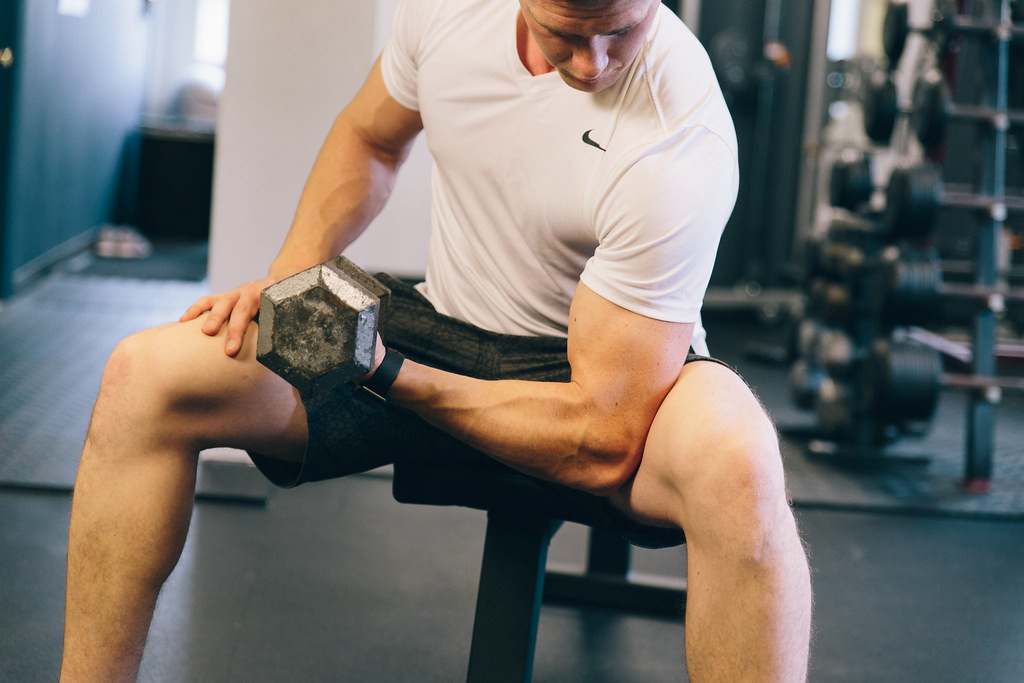Strength Conditioning: Building Power and Resilience for Optimal Health
Strength Conditioning, often referred to as resistance training or weightlifting, is a cornerstone of physical fitness, essential for achieving and maintaining overall health and vitality. It involves exercises designed to increase muscle strength, endurance, and power by challenging the body against external resistance. From lifting weights to bodyweight exercises, strength conditioning encompasses a variety of techniques aimed at enhancing muscular fitness and functional abilities.
The Importance of Strength Conditioning
Strength conditioning stands as one of the four pillars of fitness alongside endurance, balance, and flexibility. Its significance lies in its ability to improve muscle mass, bone density, metabolism, and functional capacity. Here's why strength conditioning is essential for optimal health:
- Muscle Strength and Mass: Strength conditioning stimulates muscle growth and enhances muscle strength, leading to greater power and resilience. Building lean muscle mass not only improves physical appearance but also supports functional movements and activities of daily living (Related - Anatomy Study Guide: The Muscular System).
- Bone Health: Resistance training exerts mechanical stress on bones, stimulating bone growth and increasing bone density. Strong bones are essential for preventing osteoporosis and reducing the risk of fractures, particularly as we age.
- Metabolic Health: Strength conditioning boosts metabolism by increasing muscle mass, which in turn helps to burn more calories at rest. Regular resistance training aids in weight management, enhances insulin sensitivity, and reduces the risk of metabolic disorders such as diabetes and obesity.
- Functional Abilities: Strength conditioning improves functional abilities such as lifting, carrying, pushing, and pulling, making everyday tasks easier and reducing the risk of injury. Enhanced muscular strength and endurance contribute to better posture, balance, and overall physical performance.
- Injury Prevention: Strengthening muscles and stabilizing joints through resistance training reduces the risk of injuries, particularly in athletes and individuals engaged in physical activities. Strong muscles act as protective mechanisms, absorbing forces and preventing overuse injuries.
The Role of Physical Therapy in Strength Conditioning
Physical therapy plays a crucial role in guiding individuals through strength conditioning, especially those who have barriers preventing them from engaging in strength conditioning - barriers such as injuries, surgeries, or other health related issues. Physical therapists design personalized exercise programs tailored to each individual's needs and goals, focusing on safely building strength and function while minimizing the risk of re-injury.
Moreover, physical therapists utilize specialized equipment and tools to aid in strength conditioning, many of which can be found on platforms like RehabTherapySupplies.com. Products such as resistance bands, dumbbells, kettlebells, and stability balls provide individuals with safe and effective means to improve strength and flexibility in the comfort of their own homes. Additionally, items like foam rollers and massage balls aid in recovery and muscle recovery, helping to alleviate soreness and stiffness associated with intense workouts.
In conclusion, strength conditioning is a fundamental aspect of physical fitness, offering a multitude of benefits for muscle health, bone density, metabolism, functional abilities, and injury prevention. With the guidance of physical therapists and access to specialized equipment, individuals can embark on a journey towards improved strength and resilience, leading to a healthier, more active lifestyle.
Related Blog Posts:
Endurance Training: Building Stamina for a Healthier Life
A Balancing Act: Understanding and Enhancing Stability for Optimal Health
Flexibility: Embracing Fluidity for Enhanced Well-Being
Recent Posts
-
Improve Hand Function and Dexterity with the Neofect Smart Pegboard
The Neofect Smart Pegboard is a revolutionary tool in the field of occupational therapy. I …Mar 25th 2025 -
Overcoming Challenges in Sports Medicine Clinics: Tips for Success
Running a sports medicine clinic presents unique challenges that require a balance of clinical exper …Dec 2nd 2024 -
Enhance Your Work as an Occupational Therapist with Versatile Tools for Diverse Client Needs
As an occupational therapist, you understand the importance of having adaptable and effective tools …Nov 26th 2024




